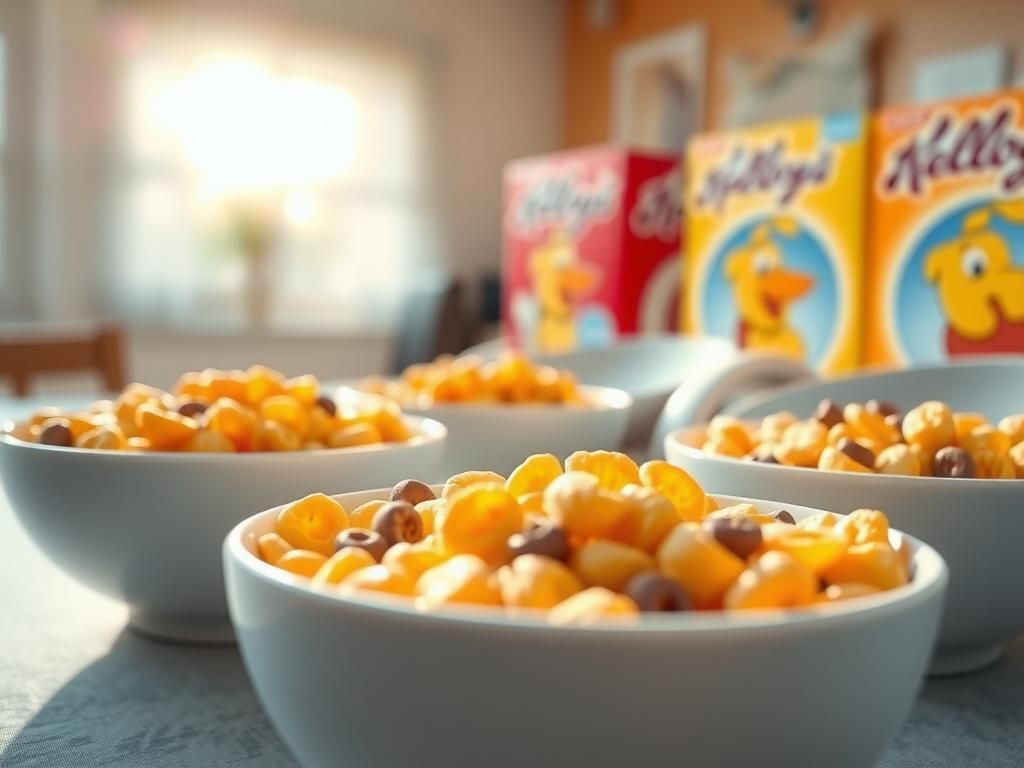Are Your Favorite Breakfast Cereals Slowly Poisoning You?
Breakfast cereals have become a staple in many households, offering a quick and easy solution for busy mornings. However, recent studies suggest that some of these popular cereals may contain glyphosate, a controversial herbicide that has raised health concerns over the years. In particular, brands like Kellogg’s and General Mills have been scrutinized for traces of glyphosate found in their products, including beloved favorites like Cheerios and Frosted Flakes. Understanding the implications of glyphosate in cereals is essential for making informed choices about what we fuel our bodies with.
What is Glyphosate and Why is it in Breakfast Cereals?
Glyphosate is a broad-spectrum systemic herbicide commonly used to kill weeds and grasses. It is particularly prevalent in conventional farming practices, primarily because it is often applied to genetically modified crops engineered to withstand its effects. This means that when these crops, such as wheat and oats, are harvested, they may retain residual glyphosate.
Many people may not realize that glyphosate doesn’t just affect the plants; it can also enter the food supply. Studies have revealed that glyphosate residues can be detected in various grains and cereals that form the base of many popular breakfast options. Concern arises when considering that long-term exposure to glyphosate has been associated with potential health risks, including cancer and disruptions to gut health.
The Reality of Glyphosate in Popular Cereals
Many brands have been called into question regarding the presence of glyphosate in their cereals. For instance, a study by the Environmental Working Group (EWG) found concerning levels of glyphosate in several widely consumed breakfast cereals.
– Cheerios and Honey Nut Cheerios were among the most frequently tested.
– Tests revealed levels of glyphosate that, while below the Environmental Protection Agency’s (EPA) tolerance limits, raised alarms for many health-conscious consumers.
– Another popular product, Kellogg’s Rice Krispies, also contained traces of glyphosate.
It’s essential to emphasize that while these products may adhere to regulatory standards, the implications of continual exposure remain a topic of heated debate among health experts.
Why Should You Consider Switching to Organic Cereals?
Switching to organic cereals can offer multiple benefits, particularly when it comes to reducing your exposure to harmful pesticides like glyphosate. Here are some reasons to consider this change:
– **No Glyphosate**: Organic farming standards prohibit the use of synthetic herbicides, including glyphosate, ensuring that your breakfast choice minimizes exposure to these chemicals.
– **Better for the Environment**: Organic farming practices contribute to healthier soil, reduced pollution, and enhanced biodiversity, supporting a wider ecological balance.
– **Nutrient-Rich Options**: Many organic cereals are made from whole grains and offer higher nutrient content as they often use less processed ingredients.
Here are some top organic cereal options to try:
Remember, making small changes in your breakfast choices can lead to significant health benefits over time.
Understanding the Health Risks Associated with Glyphosate
The health risks linked with glyphosate consumption remain a critical discussion point among health professionals. Research suggests potential associations between glyphosate exposure and various health concerns, including:
– **Cancer Risk**: The World Health Organization’s International Agency for Research on Cancer (IARC) classified glyphosate as “probably carcinogenic in humans” based on sufficient evidence in animals and limited evidence in humans for the carcinogenicity of glyphosate.
– **Hormonal Disruption**: Some studies indicate that glyphosate may disrupt endocrine function, potentially leading to fertility issues and developmental problems.
– **Gut Microbiome Impact**: Glyphosate has been shown to adversely affect the gut microbiome, which plays a crucial role in overall health, immunity, and digestion.
Becoming informed about these risks empowers consumers to make healthier choices.
Empowering Your Health Choices
When it comes to the products we consume, knowledge truly is power. It is crucial to be proactive about understanding ingredients and their potential impacts. Here are some strategies you can implement:
– **Read Labels**: Before you buy, take a moment to read ingredient labels. Look for organic certifications or products specifically labeled glyphosate-free.
– **Research Brands**: Familiarize yourself with manufacturers who prioritize non-toxic farming practices and have transparency about their sourcing.
– **Encourage Organic Options**: Advocate for healthier choices within your community by supporting local organic farmers or purchasing from brands committed to minimal pesticide use.
While it may feel daunting at first, remember that every step towards reducing glyphosate in cereals is a step towards better health.
Frequently Asked Questions
1. How can I identify cereals that contain glyphosate?
To identify glyphosate levels in cereals, look for transparency from brands on their websites or turn to independent testing resources such as the EWG.
2. Are there specific health risks associated with long-term glyphosate consumption?
Yes, studies associate long-term glyphosate exposure with potential health risks, including cancer, gut health disruption, and hormonal changes.
3. What organic cereal brands should I consider?
Some excellent organic brands include Nature’s Path, Back to the Roots, and Quaker Organic Oats, all known for quality ingredients and commitment to non-toxic practices.
As you navigate your breakfast choices, remember that understanding the role of glyphosate in cereals can profoundly impact your health journey. Make informed decisions and empower yourself to seek healthier alternatives for a better start to your day.


